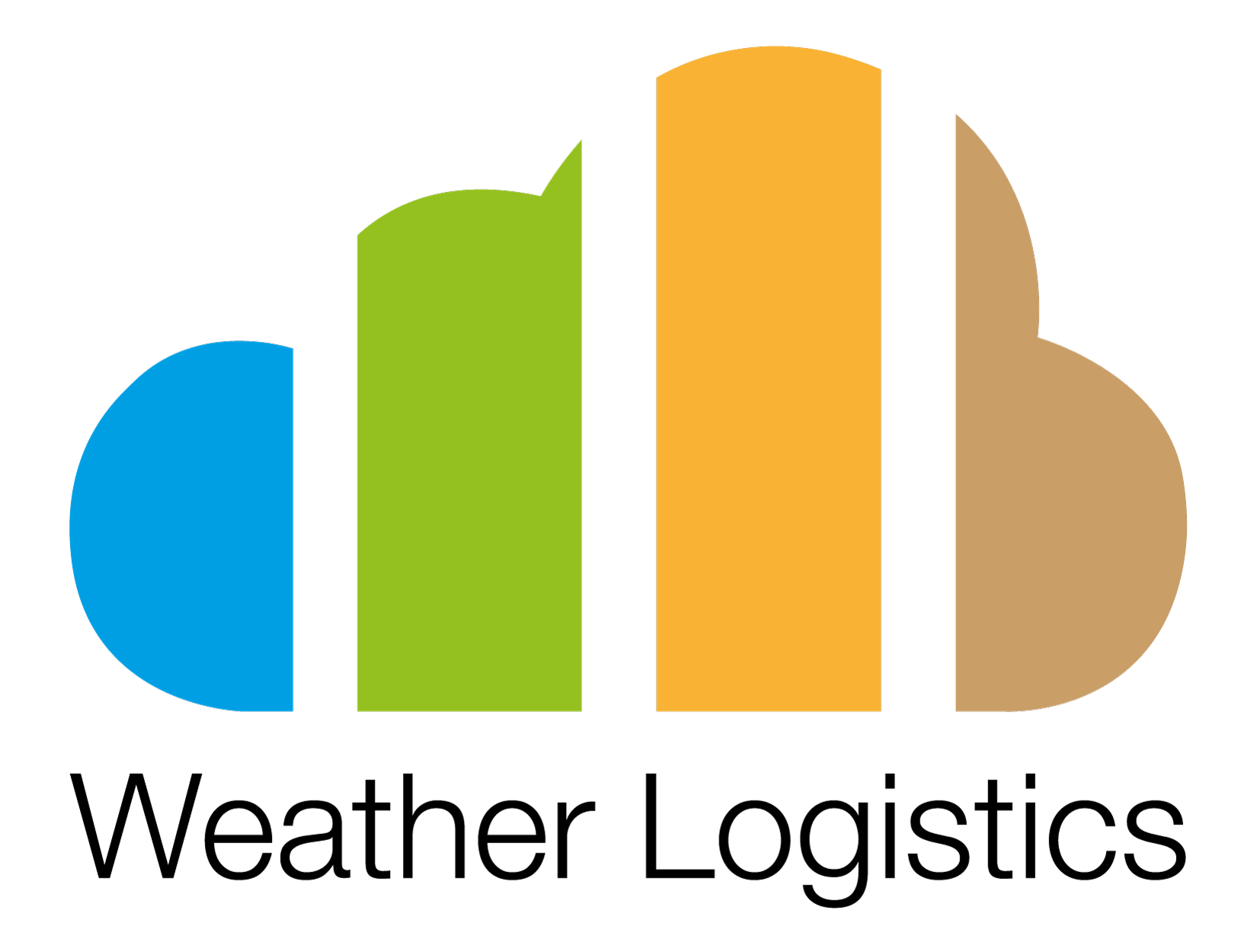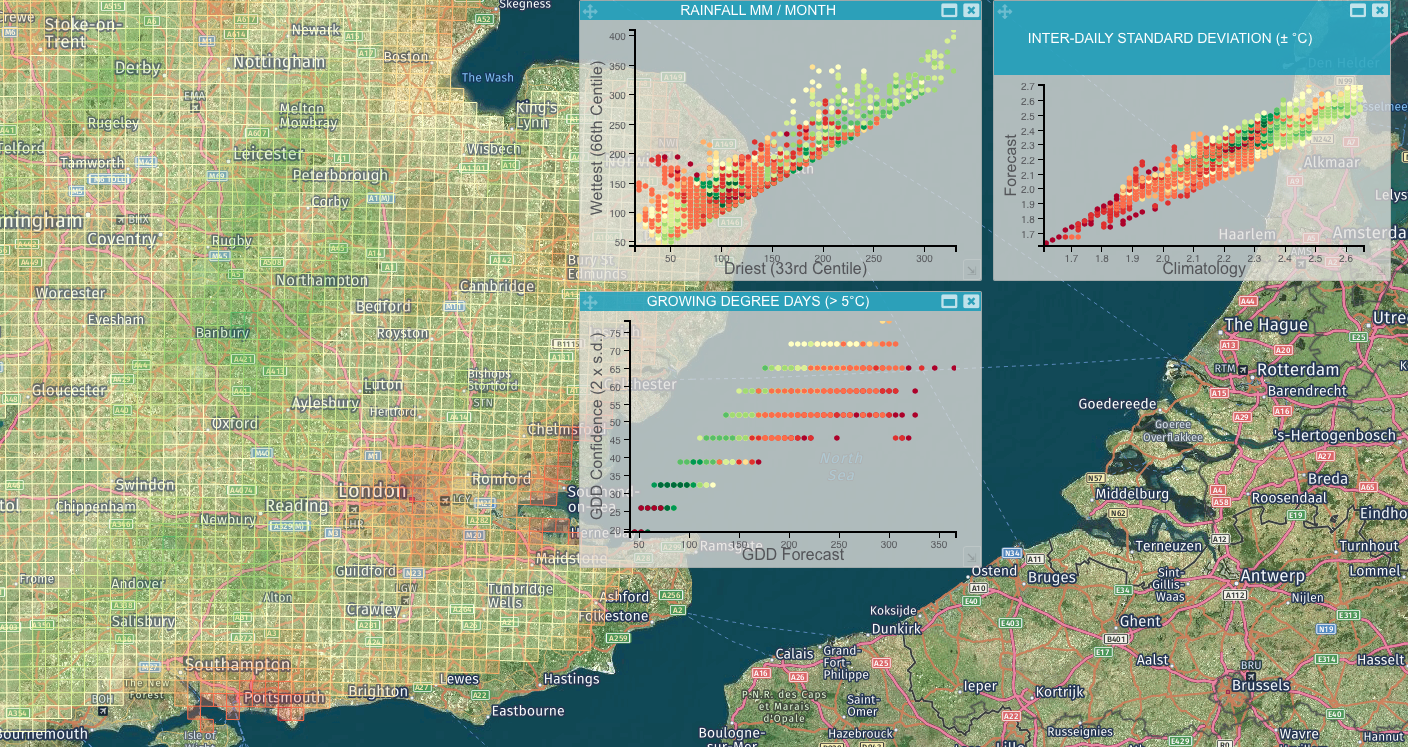
Weather Logistics: Tackling Food Security with Weather Analytics
Start-up of the Month: Weather Logistics
November 2018


Weather Logistics has successfully acquired European Space Agency (ESA) funding to further develop its climate services. Building on its long-range forecast system, the company is in active discussions with British growers to deliver the most accurate field-level rainfall and temperature outlooks. Its forecast system promises to provide growers with access to improved seasonal climate data, which will empower smarter agricultural decisions by increasing crop performance and health, reducing crop wastage, making more efficient use of water and fertiliser, and optimising crop harvests to better match supermarket orders. Ongoing collaborations with UK forecasting experts and researchers have been a great help in validating these forecasts. This will assist the process of ascertaining the market for summer rainfall predictions based on the implementation of research conducted at the University of Reading. The feasibility of this system was demonstrated earlier in 2018 by a graduate working for Weather Logistics with funding from the UK Space Agency.
Seasonal climate forecasting is a challenging science, but with access to model data from the Copernicus Climate Change Service, Weather Logistics is breaking new ground in seasonal predictions. The coaching it received in the Copernicus Accelerator programme has greatly assisted the company in obtaining business funding. With access to Copernicus datasets, Weather Logistics combines a variety of weather and climate observations with a sophisticated algorithm that adds value to the seasonal forecast model data provided by Copernicus. European weather centres use different physical representations and ensembles with different starting conditions. The CTO of Weather Logistics is experienced in combining these datasets to deliver more reliable and accurate weather data to agricultural clients, and also has expertise in processing satellite data that is available from the Sentinel missions.
 © Weather Logistics
© Weather Logistics
These professional weather services have attracted interest from the largest co-operative of salad growers. Currently, 20% of lettuce is wasted in the field. Weather variability during the two months from propagation to harvest alters the growth rate and development of the leafy heads. Grower co-operatives that manage this large-scale production are especially prone to supermarket penalties, and in the case of lettuce, surpluses cannot be stored. The current situation is that large volumes of food are wasted and ploughed back into the field. Growers of fresh produce are also impacted financially by the weather, as they bear the costs of re-locating machinery, investing in irrigation systems, or sourcing from overseas growers to avoid fines during supply shortfalls. This is a wide-ranging challenge for large-scale growers of fresh produce.
The hyper-local weather data and climate services delivered by Weather Logistics include the likelihood of heatwaves, prolonged dry weather, and air frost within five kilometres. These insights are highly unique at timescales of two to 15 weeks and are ideal for growers of fresh produce. The UK’s more variable seasonal weather makes it challenging for growers to match their yields with sales orders from large supermarkets. In the future, accurate climate predictions will be essential to mitigate widespread food shortages across Europe.
With ongoing support from data experts to optimise their prediction algorithm to run on high-performance computing facilities, the developers at Weather Logistics hope to replicate their forecasting services for large-scale Spanish horticultural producers, which supply 17% of Europe’s fresh vegetables and 39% of its fruit.
You can find the latest news on the Weather Logistics website and follow the inspiring start-up on Twitter or LinkedIn.
 Words from the Mentor
Words from the Mentor
“When I first met Chris in Tallinn in November 2017, he had already developed the weather prediction models that are at the core of Weather Logistics’ offerings and identified some customers that might be interested in the service he envisioned. However, he needed to bring in additional resources in order to deliver to these customers. Since then he has secured funding and support from organisations such as the European Space Agency, the UK Space Agency, and the Science & Technology Facilities Council. Throughout this period, Chris has been engaging with potential customers in order to ensure that the service he is developing will truly meet their needs. One of his company’s next steps will be to find investors in order to expand its team and work towards becoming a scalable business.”
Matthew Edwards
ESA Business Incubation Centre UK

